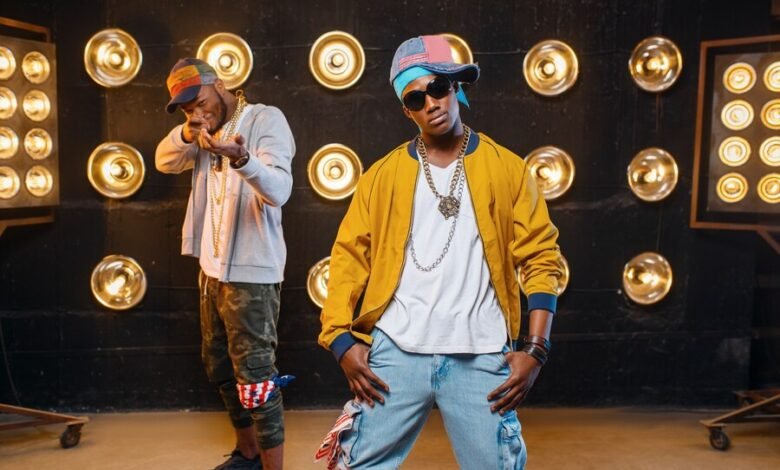From the Boombox to the Catwalk: Hip Hop’s Unstoppable Influence on Fashion

When you think of hip hop, what comes to mind first? Is it the infectious beats, the poetic lyrics, or the bold and unmistakable style? For decades, hip hop has been more than just a music genre; it has been a dynamic cultural force that has shaped and influenced fashion trends across the globe. This post explores how hip hop has made an indelible mark on the fashion industry, redefining streetwear and high fashion.
The Birth of a Movement
The 1970s Scene
The origins of hip hop trace back to the late 1970s in the Bronx, New York City. This vibrant, energetic movement emerged as a voice for marginalized communities, combining elements of DJing, MCing, breakdancing, and graffiti. But hip hop was not just about music and art; it was also about making a statement through fashion.
From the start, hip hop fashion was all about self-expression. Iconic items like oversized jackets, baggy jeans, and chunky gold chains became synonymous with the genre. Brands like Adidas and Puma became household names, thanks to their association with hip hop artists.
Early Influence on Fashion
The connection between hip hop and fashion began almost immediately. Young people started emulating the styles they saw their favorite hip hop artists sporting. Baggy clothes and sneakers became a form of rebellion against the mainstream, a way to stand out and make a statement.
Icons of Style
LL Cool J and Kangol Hats
One cannot talk about hip hop fashion without mentioning LL Cool J. His signature Kangol hats became an iconic fashion statement in the 1980s. LL Cool J’s style was a mix of street savvy and high fashion, showing how hip hop could bridge different worlds.
Run-D.M.C. and Adidas
Run-D.M.C.’s influence on fashion is undeniable. Their song “My Adidas” wasn’t just a hit; it was a cultural phenomenon. The group famously wore Adidas tracksuits and sneakers, popularizing the brand in a way that few endorsements could. This was one of the first significant collaborations between a hip hop group and a fashion brand.
Aaliyah’s Tomboy Chic
Aaliyah brought a new dimension to hip hop fashion with her tomboy chic style. She often paired baggy pants with crop tops, blending masculine and feminine elements effortlessly. Aaliyah’s style has continued to inspire fashion trends long after her untimely death.
From Street to Runway
The Rise of Streetwear
Streetwear was born out of hip hop culture. In the 1990s, brands like FUBU and Karl Kani emerged, catering specifically to the hip hop community. These brands offered clothing that allowed fans to emulate the style of their favorite artists. Streetwear was all about comfort, practicality, and making a statement.
Hip Hop Meets High Fashion
The transition from street to runway wasn’t immediate, but it was inevitable. Designers like Karl Lagerfeld and Marc Jacobs began incorporating elements of streetwear into their collections. This fusion of street and high fashion was a testament to hip hop’s growing influence.
Fashion Shows and Hip Hop
In recent years, hip hop has taken center stage at some of the world’s most prestigious fashion shows. Artists like Kanye West and A$AP Rocky have not only attended these events but have also launched their own fashion lines. This shift signifies the acceptance and celebration of hip hop culture within the high fashion world.
Collaborative Efforts
Artist and Brand Collaborations
Collaborations between hip hop artists and fashion brands have become increasingly common. These partnerships benefit both parties—artists get to expand their brand, while fashion companies tap into the artist’s fan base.
Notable Collaborations
- Rihanna and Puma: Rihanna’s collaboration with Puma revitalized the brand, making it trendy and relevant for a younger audience.
- Kanye West and Adidas: Kanye West’s Yeezy line with Adidas has been one of the most successful fashion collaborations in recent history, blending luxury with streetwear.
- Pharrell Williams and Chanel: Pharrell’s collaboration with Chanel broke barriers, showing that hip hop could seamlessly integrate with one of the world’s most luxurious fashion houses.
Impact on Consumer Behavior
These collaborations have a significant impact on consumer behavior. Fans are more likely to purchase items endorsed by their favorite artists, creating a unique blend of fashion and fandom. This symbiotic relationship continues to shape fashion trends globally.

Social and Cultural Impact
Identity and Authenticity
Hip hop fashion has always been about expressing identity. For many, adopting hip hop styles is a way to assert their individuality and connect with a larger community. However, this comes with challenges. The fashion industry sometimes appropriates hip hop styles without understanding their cultural significance, leading to debates about authenticity and respect.
Cultural Appropriation
Cultural appropriation is a hot topic in the fashion industry. While hip hop fashion has influenced many designers, not all of them acknowledge its roots. It’s essential to recognize and respect the culture that gave birth to these trends. Authentic collaborations and partnerships can help bridge this gap.
Breaking Barriers
Despite these challenges, hip hop fashion has broken numerous barriers. It has democratized fashion, making it accessible to people from all walks of life. Hip hop has shown that style isn’t confined to the elite; it’s a universal language that everyone can speak.
The Future of Hip Hop Fashion
Emerging Trends
The future of hip hop fashion looks promising. Sustainability is becoming a significant focus, with more brands adopting eco-friendly practices. Additionally, technology is playing a crucial role, with virtual fashion shows and augmented reality shopping experiences becoming more common.
Influential Figures
New artists and influencers continue to shape hip hop fashion. Figures like Cardi B, Megan Thee Stallion, and Tyler, The Creator are pushing the boundaries, introducing fresh styles and ideas. Their influence ensures that hip hop fashion remains dynamic and relevant.
Predictions
Looking ahead, we can expect hip hop fashion to continue its evolution. The line between streetwear and high fashion will blur even further, creating a more inclusive and diverse fashion landscape. Hip hop’s emphasis on individuality and self-expression will drive innovation, ensuring that it remains a powerful force in the fashion industry.
Reflecting on Hip Hop’s Fashion Legacy
In conclusion, hip hop’s influence on fashion is undeniable. From its humble beginnings in the Bronx to its dominance on global runways, hip hop has reshaped the fashion industry in profound ways. It has introduced new styles, challenged norms, and given a voice to the voiceless.
For fashion enthusiasts, hip hop fans, and trendsetters alike, understanding this cultural phenomenon offers valuable insights into the world of fashion. The legacy of hip hop fashion is a testament to the power of creativity and self-expression.
Are you ready to make your mark in the world of hip hop fashion? Share your thoughts and join the conversation!
By weaving together the rich history, influential figures, and cultural significance of hip hop fashion, this blog post aims to engage and enlighten readers, encouraging them to explore and appreciate the dynamic intersection of hip hop and fashion.



